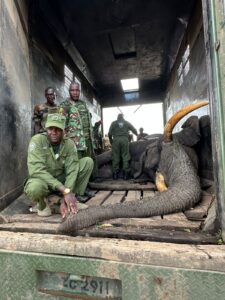In the middle of February the Kenya Civil Aviation Authority (KCAA) approved the commercial use of unmanned aerial vehicles (UAVs) lifting a two-year ban. The not finalized drafts of the proposed regulations, based on the International Civil Aviation Organization’s drone policy, required that individuals could operate UAVs as long as they registered with authorities.
IN THE NEWS
Quartz Africa, Kenya has approved the commercial use of drones
New Atlas, Kenya clears commercial drones for take-off
Mara Elephant Project is relieved to hear this news because unmanned aerial vehicles (UAVs) are a cheap and effective technology to use in our human-elephant conflict toolkit. MEP has been developing the UAV project since September 2012 when MEP CEO Marc Goss bought a simple UAV to test in the Mara. When experimenting with it, he noticed that when it flew toward elephants the effect was startling; the whole herd bunched up and ran away from the drone.
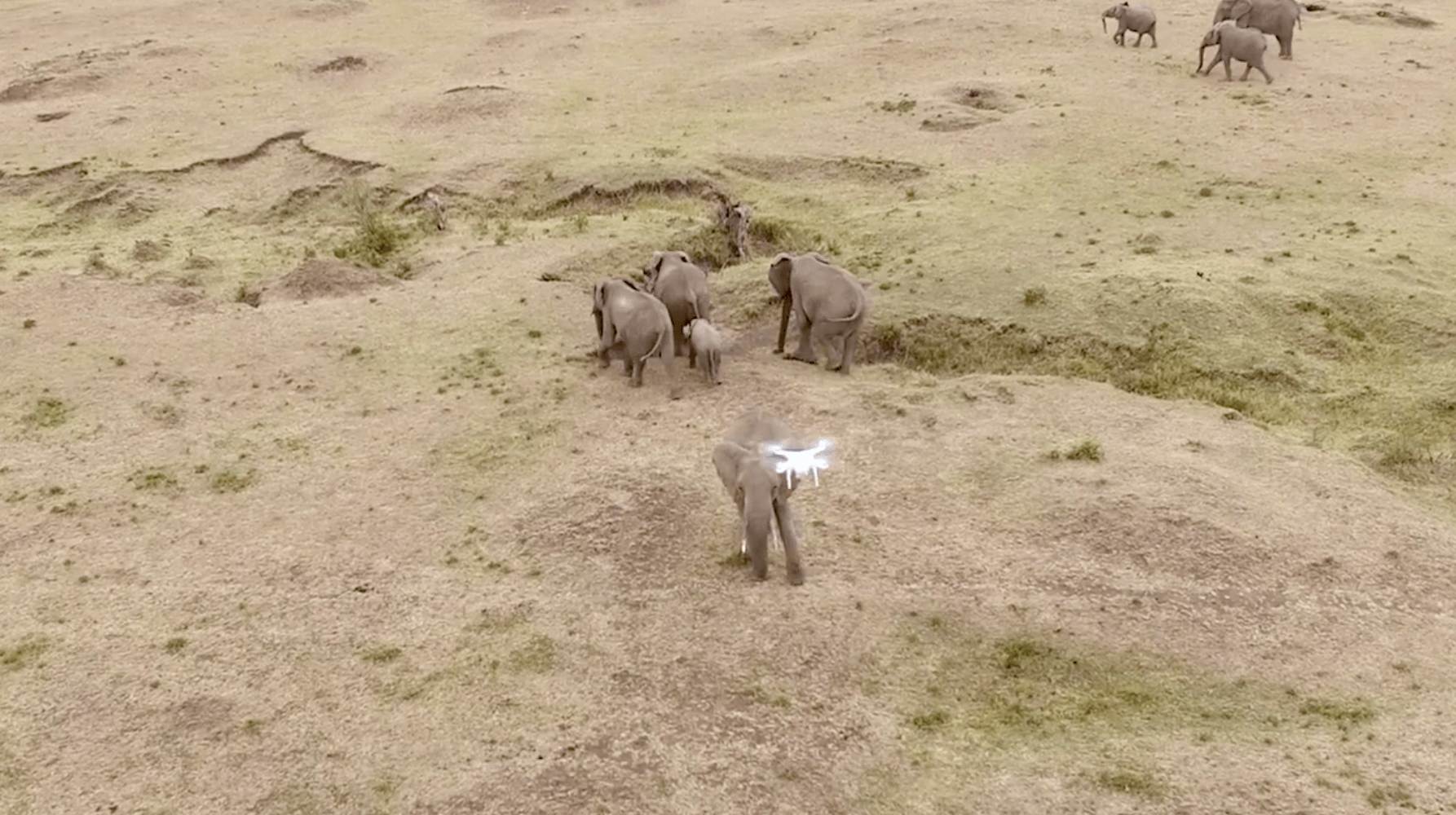
An elephant herd moving away from the sound of the UAV.
During this time, the drone technology was improving fast and field use became a reality. MEP started a training program for rangers to safely mitigate human-elephant conflict using UAVs during the day and night. The curriculum was designed so that rangers could pick up the necessary skills to fly safely and effectively. MEP successfully conducted three trainings in Tanzania from 2013 to 2016 for Tanzanian wildlife authorities. MEP had to continue this work in Tanzania because of Kenya’s UAV ban in 2014, and through this work we partnered with RESOLVE who funded the project, and built a relationship with the Tanzanian authorities.
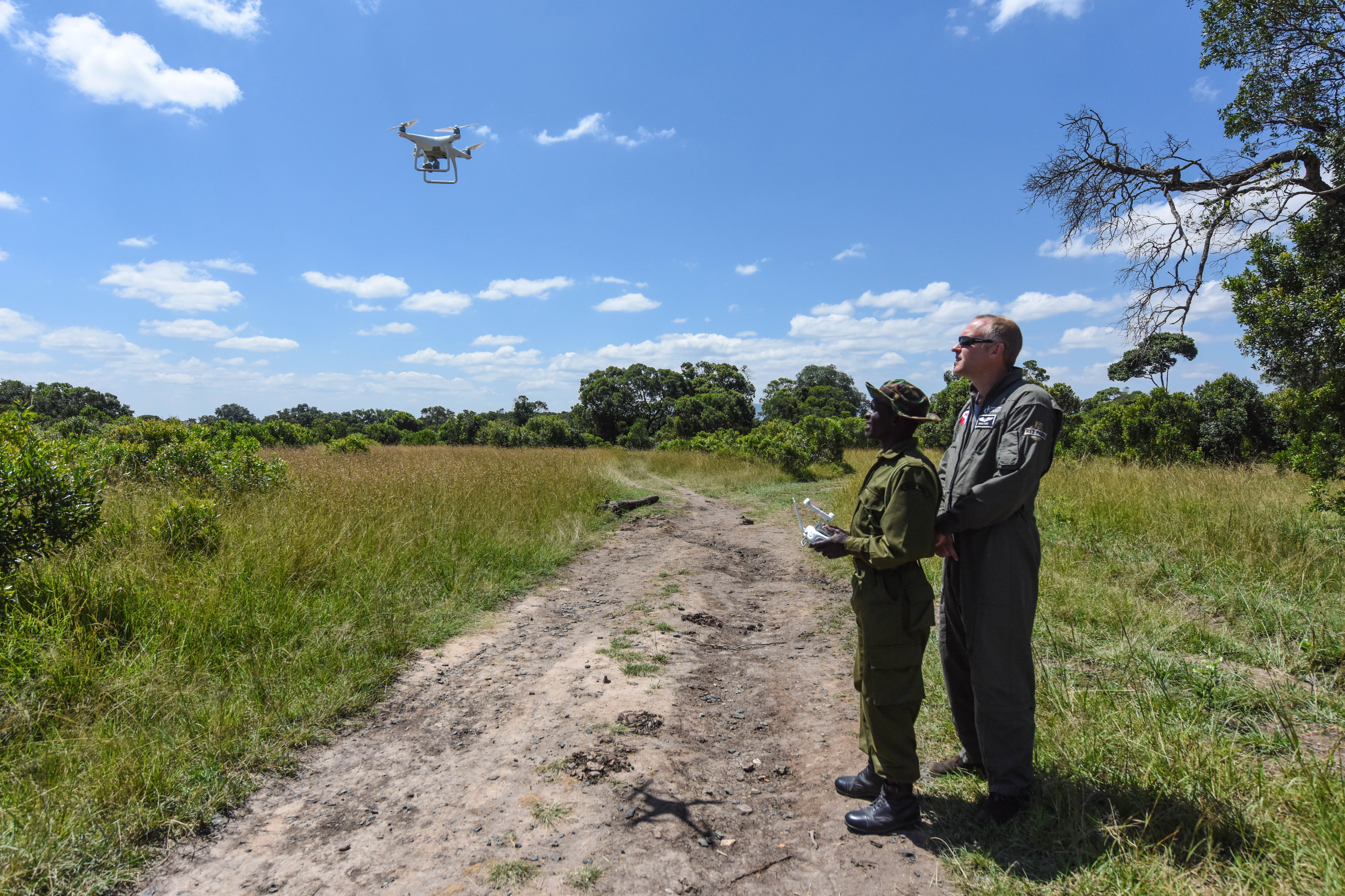
MEP CEO Marc Goss with a ranger flying one of the UAVs.
Following all of the training in Tanzania, MEP made multiple submissions to the Kenyan authorities to get exemption for flying small UAVs to mitigate human-elephant conflict, but was never approved. Now, under the new regulations MEP will register a club and submit our constitution, curriculum and rules in hopes of flying soon.
UAVs are portable and easy for rangers to use in the field and can be the first tactic rangers use to move elephants out of unwanted areas before the helicopter is called in. All MEP rangers will get updated training to use the UAVs in the field and though MEP is still waiting to receive official permission from the Kenyan government to use UAVs in its conservation efforts, we still need to raise money for eight new UAVs by the end of 2017. This will ensure that all of our ranger teams are equipped with this essential technology. 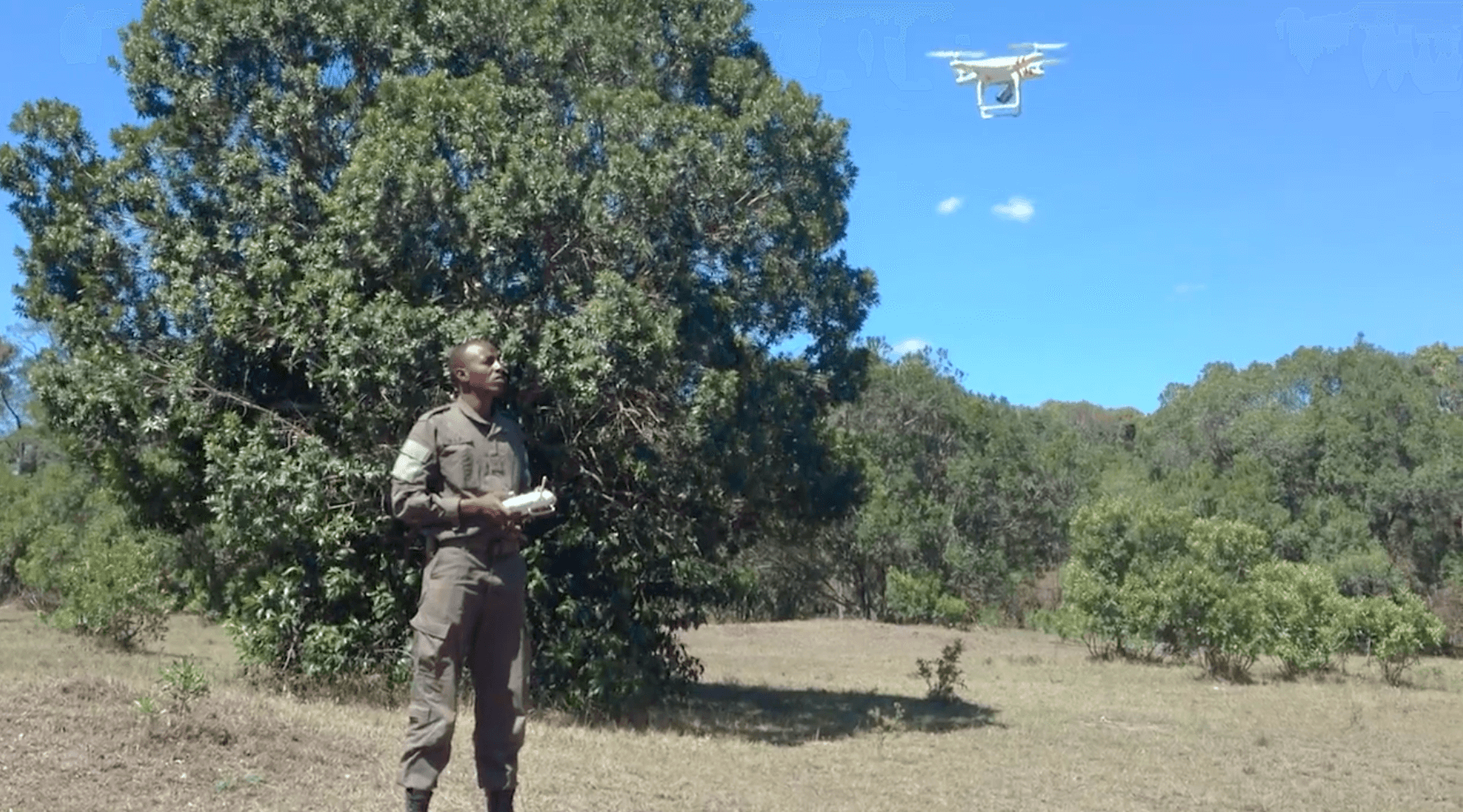
A MEP ranger in the field using a UAV.
MEP recently had a generous donation from Brett Velicovich that purchased several new UAVs for our ranger patrol teams. This donation was the perfect fit for Brett, founder of Expert Drones, an industry leader in the retail and servicing of commercial drone products, unmanned aerial vehicles, and drone kits for both the hobbyist and experienced professional. Brett is also a member of the core team for The African Eye Project, which is using drone technology to save African wildlife.
“I felt it important to donate to MEP because MEP is at the forefront of anti-poaching initiatives that are near to my heart. It’s important that groups like them receive both the money and equipment to fight the illicit wildlife trade industry. It’s getting out of hand and we need to do something about it. We will be donating drones in the future as well as more of our time.” Brett Velicovich
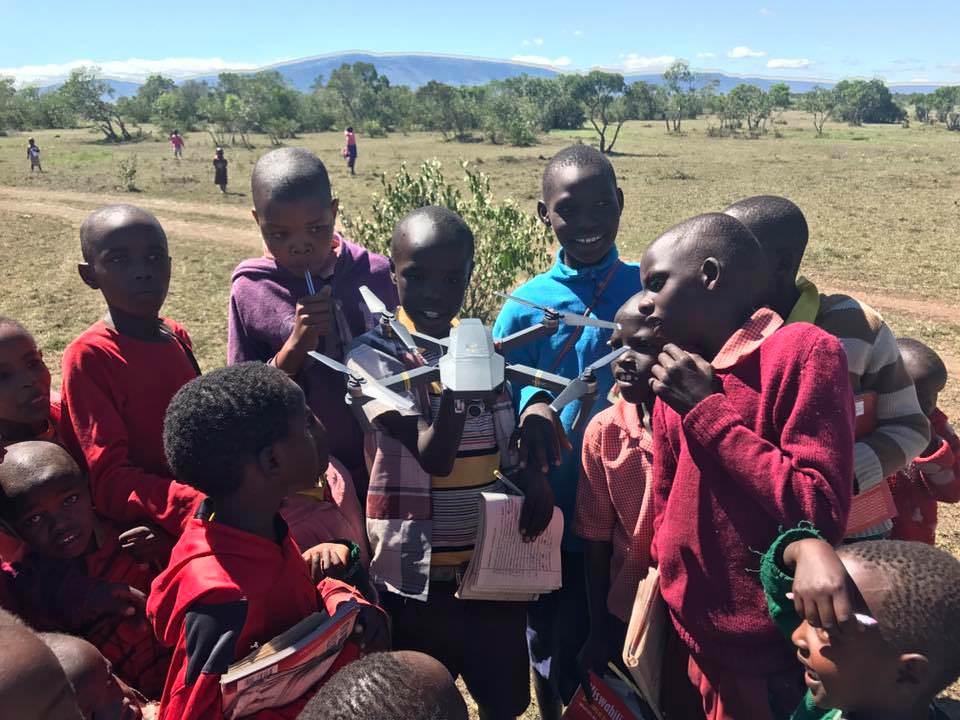
A photo on Drone Expert’s Facebook page showing recent work they did in Kenya.
We feel optimistic that Kenya is embracing legal drone operation. Nairobi recently hosted the Drones East Africa conference in late June, which highlighted the applications of drones and the regulations governing the use of this technology across various sectors such as construction, transportation, mining, agriculture, energy and emergency services.
Mara Elephant Project is hopeful that by the end of 2017 we have all of our ranger teams equipped with this essential technology so that we continue to move forward in our mission to protect elephants in the greater Mara ecosystem.


